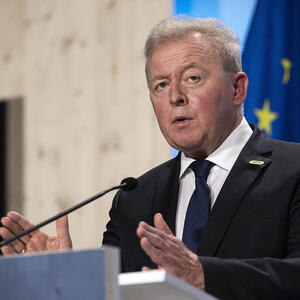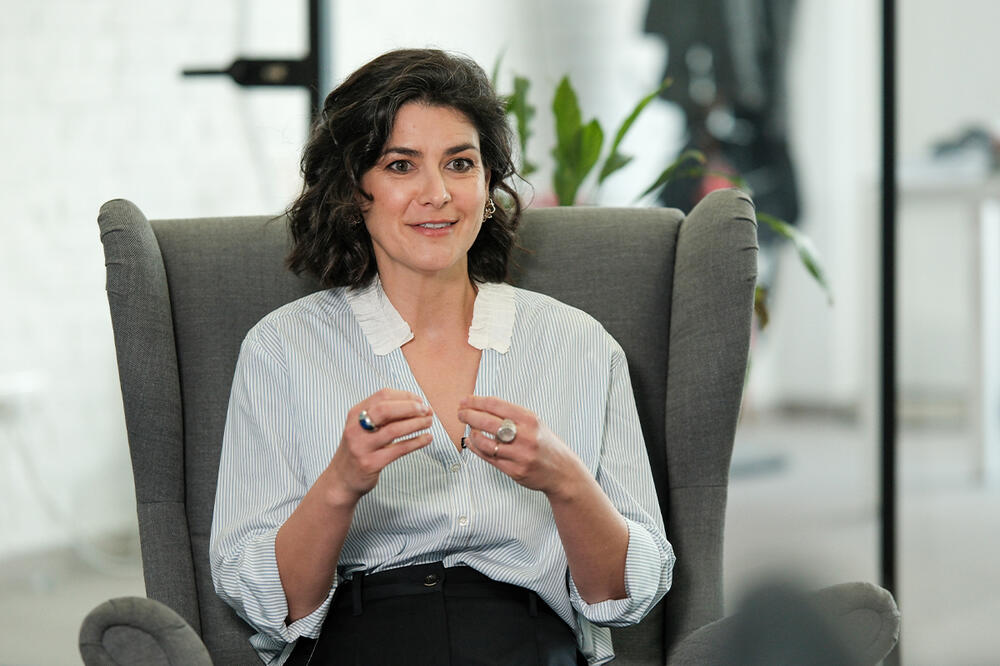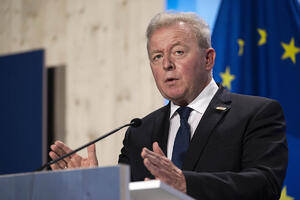Plamena Halacheva, Deputy Head of the EU Delegation to Serbia, has been living in Serbia for over a year. In an interview for EUpravo Zato on the occasion of Europe Day, she shared her impressions of life and work in our country.
Since September 2022, Plamena Halacheva has been the Deputy Head of the European Union Delegation in Serbia. She attends events, actively participates in all activities related to EU investments in Serbia, appears in the media, and addresses the challenges and the transition path. But what is her life like in Serbia? When she looks at our country through the eyes of a foreigner living in Belgrade, what does she see?

In an interview for EUpravo Zato, on the ocassion of Europe Day, celebrated on May 9th, Plamena says that despite the intensity of her work, she feels at home in Belgrade. She particularly loves the smell of old buildings and streets because they remind her of the other cities where she has lived.
“It’s been over a year and a half since I started working in Belgrade, but it feels like much more time has passed. This is primarily due to the intensity and rhythm of our work, but it also has to do with the fact that I feel at home when I’m in Belgrade. The specific smell of buildings, for example, in Stari grad or Vracar, is identical to what I experienced in Sofia or Skopje, where I lived ten years ago. Or for example, the smell of the linden trees - I’m happy they are on my street in Belgrade. It immediately takes me back to my childhood and brings back very dear memories. So I would say there is a very strong emotional attachment to Belgrade.“
One of the things she loves most is the rich cultural and artistic life.
“I can certainly say that one of my daily challenges is balancing all cultural and artistic events with my family obligations and professional commitments. My job often extends beyond the usual nine-to-five, so because of the great cultural offerings, it’s often hard for me to decide how to spend my evenings.“
When the weekend comes, is there a place in Serbia you wish to go to relax?
“I’m in love with your mountains. Of all the ones I’ve been to, I would say Tara is my favourite. Rtanj is next on my list to explore. So I can’t wait to discover more of Serbia’s natural beauty. I really believe it’s something that you should cherish, preserve and promote. We support Serbia in various ways, from technical assistance, through support in drafting regulations and policies that meet European standards, to significant investments in infrastructure, especially in wastewater treatments plans and solid waste, as well as support for innovative ideas and green pilot projects. I think it’s very important to have more sustainable and greater future for our children.“

Our cuisine is something we like to take pride in. What are your favourite local dishes? Is there a specialty that you will “take home“ after your assignment?
“This is tough question. First, because I’m a big foodie, and second, because I come from a neighboring country, so I think our gastronomic traditions are very close. Although the names and shapes may differ, we have a lot in common. We also have sarma, katchamak, we call gibanica “banica“, and ćevapi “kebab“, but essentially we’re talking about very similar dishes. One dish that I think we don’t have in Bulgaria, which I discovered during my visit to Montenegro, and I also think it’s a traditional dish here, is tsitsvara (cornmeal porridge). An ideal dish after a long day of skiing.“
How good are we at presenting all these things, our riches, to Europeans?
“A lot has been done, but we still have a lot of work ahead. We need to accept the basic premise that Serbia is already a European country and that nobody questions its Europeanism, so we shouldn’t either. We can do much more to promote successful stories from Serbia, such as sporting, cultural, or scientific achievements. Recently, we invited journalists from member countries to present to them some innovative projects you are working on, we showed them the fantastic BioScience Institute. And those are the types of news I personally would like to see more of in international media. Another aspect of the matter is that I would like to see more positive news about the European Union in domestic media. We often reduce the European Union to sensationalist headlines and fail to discuss the broader picture.
“The broader picture is a common European future for our children. Therefore, I really believe that we need to focus and do more on this topic.
“Serbia is one of the most successful users of our Creative Europe program, which is the main form of support for creative and artistic industries in Europe.
“Thanks to this program, many Serbian films have been produced and later awarded, such as Otac, Nečista Krv, Strahinja, and Leto Kada Sam Naučila Da Letim. We also support numerous annual cultural events, such as Fest, Beldocs, Belgrade Dance Festival, Nishville, the list is very long. So, whenever I can, I attend these events with great pleasure,” says Plamena Halacheva.
This text is taken from the EUpravo Zato communication platform, which was launched within the framework of the WMG Foundation with the aim of contributing to better understanding, building trust, and strengthening partnerships between Serbia, the Western Balkans region, and the European Union.




